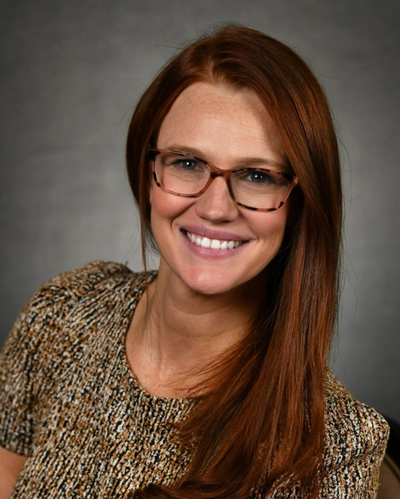Online Certificate: Tax and Elder Law
When Elder Law professionals need the Tax Knowledge, not the Tax LLM
For elder law professionals working with middle-class clients, a comprehensive Tax LLM is often unnecessary. However, a solid foundation in tax law is essential, as many cases involving older clients present common tax-related issues. This certificate program is structured to provide that crucial tax knowledge, covering key areas divided into four distinct courses. It is ideal for attorneys and financial advisors with at least 3 to 5 years of experience in elder law who don’t already hold a Tax LLM
Each of the four courses spans a two-week period and includes around 20 hours of lectures and instruction. Participants have the flexibility to take all four courses for the full Certificate or enroll in individual courses à la carte, depending on their needs. Note that each course is only available during its scheduled offering dates.
Upon completion of individual courses, students will earn a digital badge to showcase their skills. Upon completing all four courses, students who pass a comprehensive final assessment will earn both a digital badge and the Certificate in Tax and Elder Law from Stetson University College of Law.
Join our mailing list for news and updates on upcoming course dates.
All courses are offered online to provide maximum flexibility for students pursuing knowledge in tax issues affecting older clients. Each course lasts two weeks, with new lectures available each weekday. At the end of each week, instructors will host a live, two-hour Zoom Q&A session on Saturday, providing a deeper dive into specific topics.
Course sequencing: Although students may take any combination of the courses, each course may only be taken during the dates they are specifically scheduled.
Reading materials: No textbooks are required. Instructors may assign articles or cases, which will be provided through the Canvas learning platform.
Lectures: Each course features pre-recorded video lectures and PowerPoint presentations, which will be released nightly over the two-week duration. Students are responsible for watching these lectures and completing any assigned projects. There are no grades or exams in the courses.
Time commitment: Students should expect to spend around 20 hours over the two-week period on watching recorded lectures, completing assigned readings and projects, and attending the live weekend Q&A sessions.
Foundations of Tax in an Elder Law Practice
Instructor: Michael Kirtland
This course provides a comprehensive overview of the interplay between estate, gift, and income taxes, with a focus on the unique tax issues faced by elders. Topics include income reporting, deductions, and credits specific to elder taxpayers, along with a detailed review of IRS forms, tax returns, and relevant schedules. Participants will examine the distinctions between capital gains and ordinary income tax rates, explore strategies to reduce taxable income, and discuss options for maximizing deductions and exemptions. The course also covers elder-related tax credits, such as childcare credits for clients responsible for grandchildren or dependents, and situations where a child may claim a dependent parent. Current and proposed tax law changes impacting elder law practice will also be reviewed.
Foundations of Gift and Estate Taxes
Instructor: John DeSantis
This course offers an overview of estate and gift taxes, along with current updates on the potential unification of tax credits and rates. Key topics include asset inclusion in an estate, detailed review of a sample Estate Tax Return (Form 706) with all schedules, and a discussion of allowable expenses and deductions. Participants will learn how to prepare and apply the Deceased Spouse’s Unused Exclusion (DSUE) in the surviving spouse's estate. The course will also cover the distinctions between complete and incomplete gifts, preparation of the Gift Tax Return (Form 709), and strategies for utilizing the annual exclusion, unified credit, and gift splitting.
Advanced Taxation Issues in Elder Law
Instructor: Shannon Laymon-Pecoraro
This course delves into the taxation of various investment vehicles, including capital gains, savings bonds, annuities, stocks, bonds, CDs, and the sale of personal residences (both during life and post-death, along with applicable exceptions). The tax implications of qualified retirement plans such as IRAs, 401(k)s, 403(b)s, and deferred compensation plans will be examined, with a focus on post-death distributions to beneficiaries under SECURE and SECURE 2.0. Participants will explore considerations for the final year of an entity, including reasons for early termination or continuation, and review calendar and fiscal year implications. Topics also include the funding and taxation of trusts designed to protect assets from long-term care expenses, the determination of completed gifts through trust gifting, and strategies for funding 529 and ABLE accounts.
Specialized Tax Topics for Elder Law Professionals
Instructor: Hyman G. Darling
This course provides an in-depth exploration of key entities such as LLCs, FLPs, and corporations, focusing on their formation and strategic use within estate planning. Topics include the gift, estate, and income tax implications for these entities and their beneficiaries, including estates and trusts. Advanced charitable planning strategies will also be covered, including CRUTs, CRATs, charitable gift annuities, donor-advised funds, and community foundations. Participants will learn about collaborative practices with CPAs and financial advisors, as well as disclosure requirements, appraisal standards, and ethical considerations. Additional topics include tax issues related to long-term care insurance premiums and benefits, special needs tax issues, kiddie tax considerations, and strategies for tax minimization.
Certificate Assessment
For those pursuing the full Certificate, completion of all four courses will be followed by a comprehensive assessment. To earn the Certificate, students must successfully pass this assessment.
Michael A. Kirtland
John P. DeSantis
Shannon Laymon-Pecoraro
Hyman G. Darling
Each individual course is priced at $2,000 (Approx. $100 per CLE hour). There is no additional fee for the assessment required to earn the Graduate Certificate.
Discounts are available for organizations enrolling two or more employees. For details, please contact [email protected].
Tuition must be paid in full before the course start date. Please note that tuition is non-refundable.
This program does not offer scholarships or financial aid.
Participants enrolled in one or more courses in this program will receive one (1) complimentary registration, either virtual or in-person, for the Tax Intensive pre-conference program at the 2025 National Conference on Special Needs Planning and Special Needs Trusts. For additional details, please visit the SNT page.
Stetson Law has applied to the Florida Bar for CLE credits for each of the courses. While Stetson Law does not apply for or pay for CLE credits in states other than Florida, we will provide attorneys with the materials needed to apply for CLE credits in other states. Attorneys should contact their state's Bar association with specific questions about obtaining CLE credits for these courses.
What is a digital badge?
Digital badges are online representations of skills, achievements, or certifications. Each badge contains metadata that provides details about the issuer, the criteria for earning the badge, and evidence of the achievement. They can be showcased on platforms such as LinkedIn, and serve as a modern way to visually and verifiably demonstrate one's accomplishments and skills.
What is a Certificate?
A Certificate is a non-credit, non-degree credential that enables you to gain specialized knowledge and develop specific skills within a targeted field. Certificates are typically more affordable and quicker to complete than traditional graduate programs, making them a practical option for professionals looking to deepen expertise without pursuing a full degree.
Do I need to complete all four courses in a single semester to earn the Certificate?
No. The courses are offered every Fall and Spring, allowing flexibility in how quickly you progress.
How long do I have to take all four courses, if I choose not to take them all in one semester?
You have up to two years to complete all four courses in order to qualify to sit for the Certificate Assessment.
Can I apply these Certificate courses towards a Law degree at Stetson University?
No. The courses within the Tax and Elder Law Certificate program do not carry academic credit and cannot be applied toward any degree programs at Stetson University College of Law. Participation in these courses will not result in a degree, alumni status, or earned academic credit at Stetson University or Stetson University College of Law, nor will it be recorded on their transcripts. Additionally, it does not guarantee admission to Stetson University, Stetson University College of Law, or any other institution. .
What is your cancellation/refund policy?
Stetson Cancellation: If Stetson University College of Law needs to cancel a course for any reason, participants will be notified at least 24 hours in advance by phone or email. In the case of a course cancellation, a full 100% refund will be issued to each registered participant.
Attendee Cancellation: Stetson Law will provide a refund, minus a $75 cancellation fee per course, for any cancellation requests received by 5:00 p.m. Eastern Time on the fourteenth (14) business day before the course start date. Business days are Monday through Friday, excluding holidays. No refunds will be granted for cancellations received within thirteen (13) business days of the course start date or for cancellations made after the course begins. Additionally, once you access the online course materials, you will no longer be eligible for a refund.
Join our mailing list for news and information in upcoming course dates!
Program Details
Format: Online
Duration: 2 - 8 weeks
Cost: $2,000 - $8,000
Program Staff
Program Director
Jessica Zook
Director of Professional Education
Stetson Law
[email protected]
Program Advisor
Hyman G. Darling
Attorney
Bacon Wilson, P.C.